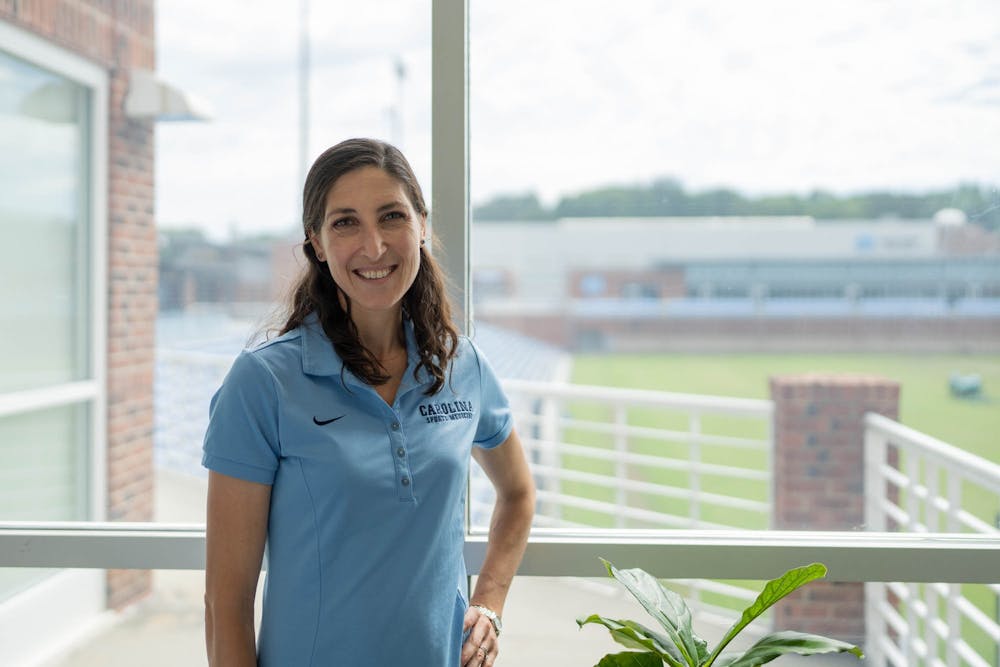Growing research supports the importance of sports psychology, especially in schools and athletic programs with high-performance expectations.
At UNC, a Power Five school that holds each team to a standard of national competition, establishing mental health programs for athletes is especially critical for their overall wellbeing.
Jeni Shannon, the director of the Carolina Athletics Mental Health and Performance Psychology Program, is one of three full-time providers at UNC pioneering the athletic department’s approach to sports psychology. Shannon, alongside Brendan Carr and Bradley Hack, are developing programs to help address mental illness within UNC’s athletic community.
When Shannon was a senior in high school, a career-ending injury pulled her out of the world of competitive gymnastics and into coaching. An undergraduate course at the University of Arizona called “The Psychology of Excellence" exposed to her to the field of sports psychology, and she noticed its relevance through her own experience in sports and her time with players.
While Shannon recognizes that UNC provides “an exciting athletic culture to be a part of,” she is also cognizant of the impact of high athletic expectations coupled with academic rigor.
“I think the flip side of it can be (that) it’s a lot of pressure and you’re very public sometimes,” Shannon said. “There is a lot of expectation. It’s a tough life, it really is.”
The impact of Shannon and her colleagues’ work within the athletic space reveals a key oversight within the field of sports medicine when it comes to mental health, especially in light of the COVID-19 pandemic.
Rising senior volleyball player Parker Austin saw life as an athlete at UNC before and after COVID-19, and said that being an athlete during the pandemic was an isolating experience.
"It's this never-ending cycle of wake up, work out, go to practice, come home, shower and go to bed," Austin said. "It's just this chronic cycle that you get kind of get stuck into and you don't leave your room, and you just don't get to see other people. That affected me pretty heavily."



